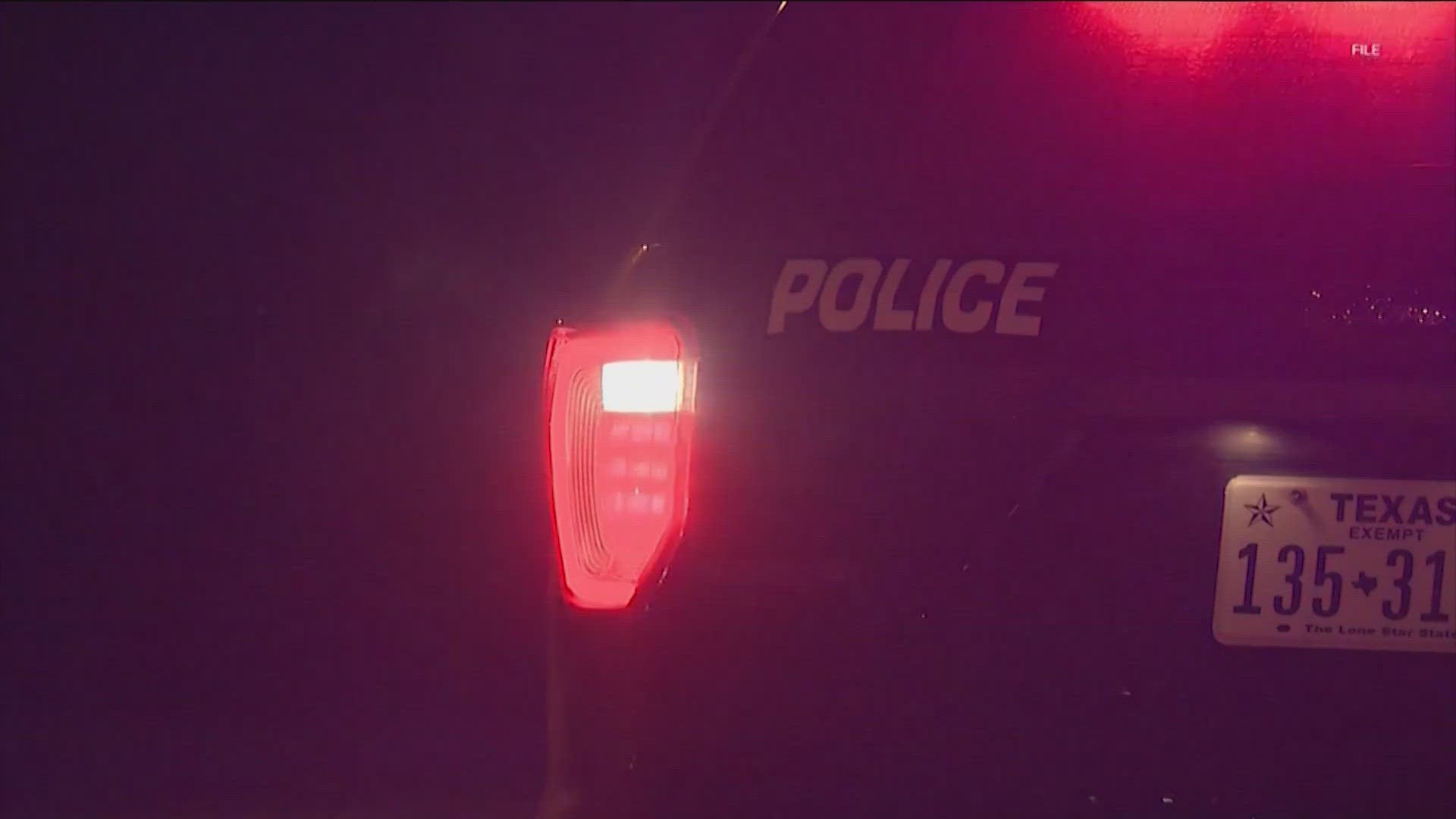AUSTIN, Texas — Austin Police Department (APD) Chief Joseph Chacon and APD Chief Data Officer Dr. Jonathan Kringen provided an update Friday morning on the partnership between the police department and the Texas Department of Public Safety (DPS).
The press conference followed a status report issued by Chacon and Interim City Manager Jesús Garza to Mayor Kirk Watson and the Austin City Council on Thursday.
DPS troopers have been assisting APD officers with patrols since March 30. Chacon said Friday that the police department is at a "critical point" where it is 300 officers short, with most of those on patrol. Chacon said he is having to take officers off of different types of police work, including specialized units, and put them on patrol.
For these reasons, Chacon said the partnership with DPS is valuable.
According to Chacon and Kringen, in the first week of the joint operation between APD and DPS, the number of violent crimes dropped 25% from the average weekly number of violent crimes for the past year. Violent crimes include aggravated assault, murder, sexual assault and robbery.
According to Kringen, APD tends to look at what's happening weekly in a year of data because of seasonal changes and other underlying factors.
"We always have to look at an entire year so we have a sense of where it should be. So, the entire year, the average is 89 violent crimes per week. Last week, in the first week of the DPS deployment, it was 67," Kringen said Friday. "And that is a significant difference, statistically. It’s something that we would not expect to see, given what the data predicts.”
Chacon and Kringen also said that response times have decreased in the past two weeks, dropping by as much as two to seven minutes, depending on the type of call.
Calls for emergencies are going down too.
"The most risky calls dropped by 27 percent in areas DPS was working, 15% citywide," Kringen said.
Since the partnership started 2 weeks ago, DPS made more than 4000 traffic stops and have been writing tickets just 25 percent of the time.
Chacon says they are not making traffic stops based off demographics in specific neighborhoods. Instead, they are focused on where the calls are coming from.
"We know that the majority of the time, the officer or the trooper that is pulling the person over 97 percent of the time does not know the race of the person that's in the vehicle," Chacon said.
Due to operational security, APD is not providing specific deployment numbers.
Chacon said that APD continues to be the lead agency for calls that are major investigations, including homicides, sexual assaults, traffic fatalities and domestic violence calls. APD also remains the lead agency on all mental health calls using the department's Crisis Intervention Officers.
DPS troopers are assisting with traffic enforcement, but also deploy daily to areas where the highest number of emergency calls for assistance originate. Troopers may also help secure the scene of a major investigation when necessary until APD officers arrive.
According to Chacon and Kringen, as of April 14, the joint operation has resulted in:
- 728 total APD assists
- 96 felony arrests
- 63 misdemeanor arrests
- 62 felony warrants served
- 54 misdemeanor warrants served
- 289 pounds of methamphetamine seized
- 200 grams of cocaine seized
- 40 grams of heroin seized
- 9 pounds of marijuana seized
- 25 handguns seized
- 2 shotguns/rifles seized
- 16 stolen vehicles recovered
- 4,016 total traffic stops
- 18 welfare checks conducted
- 6 mental health referrals made
To ensure that DPS is operating in alignment with APD, Chacon said he meets daily with Vincent Luciano, DPS Regional Director for Central Texas, to discuss the joint operation. He also said that each week, APD and DPS leadership meet with the troopers who are being deployed that week to set out expectations.
"In my collaboration with DPS, what I have heard consistently, over and over, is, 'We want to be a good partner. We want to come in and we want to help in Austin.' And I have been very clear that we live here – APD, we live in Austin and this is our community," Chacon said Friday. "Our community has certainly let us know over time the way that they would like to see police services delivered. I have shared that with DPS leadership, and DPS leadership has made a commitment that, to the greatest degree possible, they're going to try to stay within that framework. That’s why I feel very good about them being here."
Earlier this week, Councilmember Vanessa Fuentes (District 2) tweeted about the APD-DPS partnership and her displeasure that it happened without the input of the city council. She said she hopes to learn more about where the patrols are taking place and what kinds of arrests are being made.
Councilmember Mackenzie Kelly (District 6) also compiled a list of the most asked questions from her community that she submitted in a memo to the city manager. The questions centered around hotspots DPS troopers are working in, outcomes from their searches, the number of guns that have been seized and violent crime numbers.
Chacon said Friday that even with DPS troopers' help over the past few weeks, he has not yet been able to pull specialized officers back off of patrols.
Chacon also said there is no timeline for how long the partnership with DPS will last.
"We're kind of letting the data drive it, and we'll make a decision jointly on when it makes sense to end the operation," he said.

